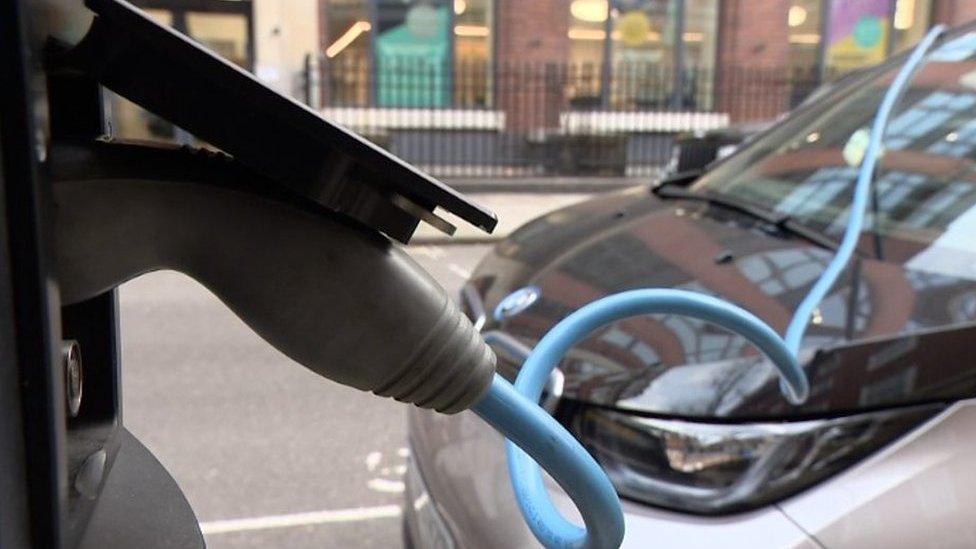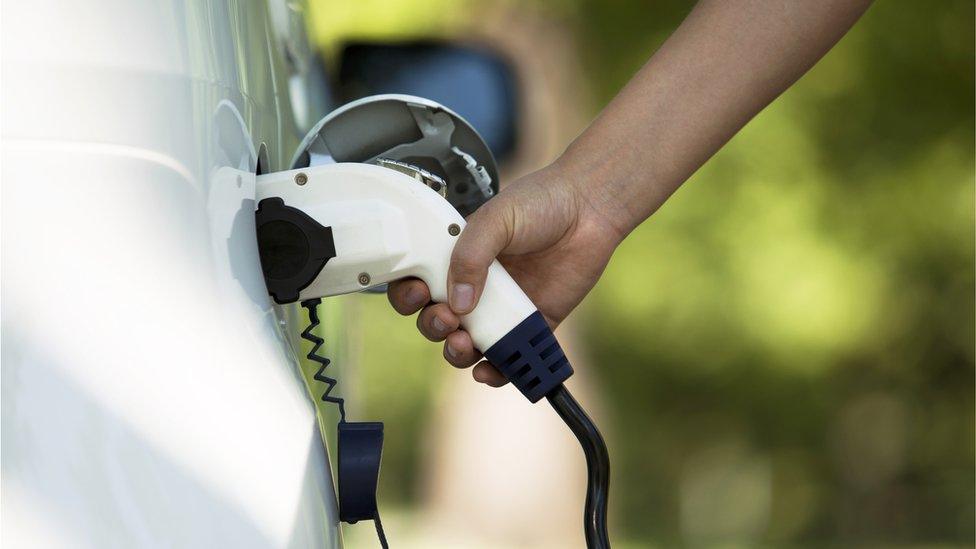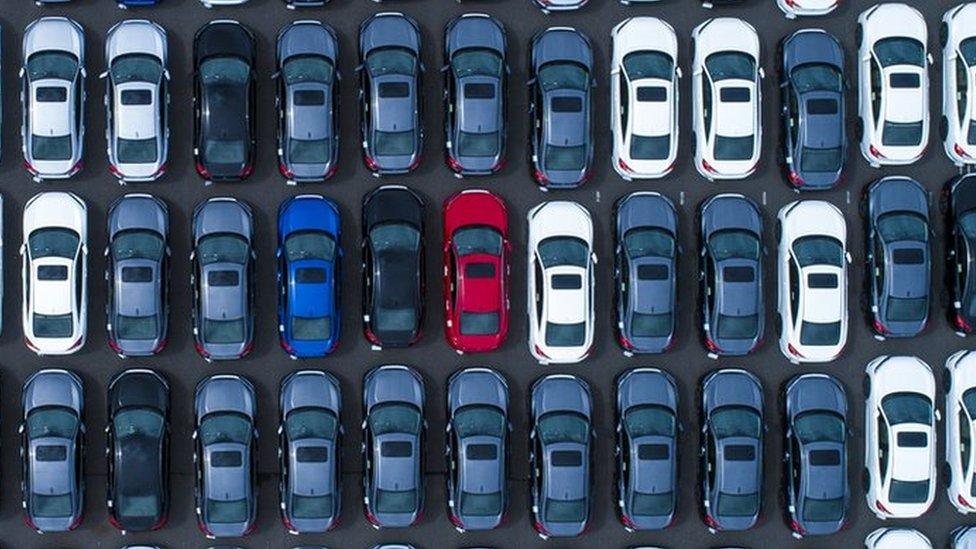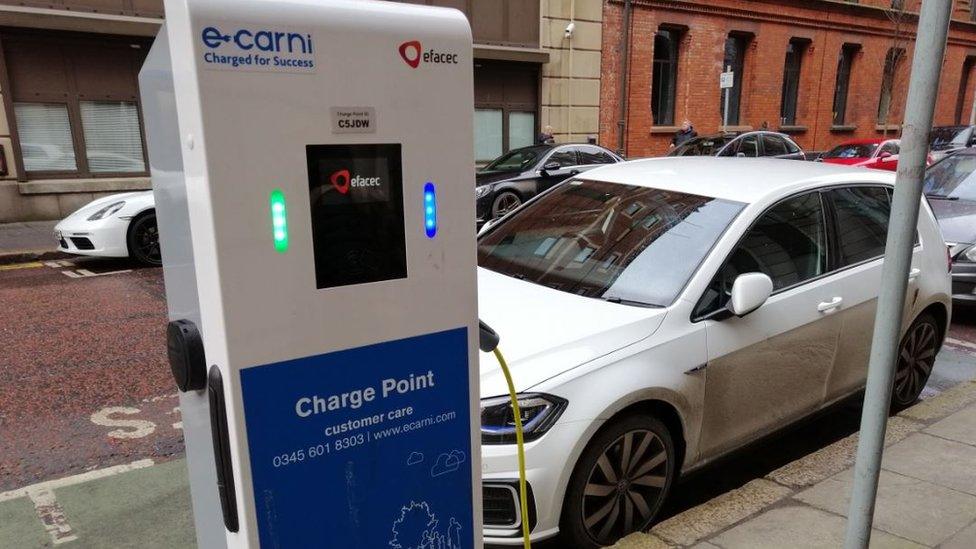Motoring groups criticise cut in electric car subsidies
- Published

Motoring groups have criticised plans to further cut the size of government grants towards buying electric cars.
From Wednesday, the amount has been reduced from £2,500 to £1,500. Electric cars priced under £32,000 are eligible.
The Department for Transport says it's targeting the funding at more affordable vehicles.
The government's plug-in subsidy scheme has been used to buy nearly 500,000 cars over the past decade.
The government argues that while grants have reduced over time, sales of electric vehicles have grown, reaching record levels in 2021.
Sales of zero-emission new cars are up 89% this year compared with 2020, and in the last three months nearly a quarter of new cars sold had a plug. Sales of new petrol and diesel cars and vans in the UK will be banned from 2030.
Under the changes announced on Wednesday, the maximum grants for electric motorcycles or mopeds have been cut to £500 and £150 respectively. Previously drivers could get up to £1,500 for both.
Large electric vans are now eligible for a grant of up to £5,000 - down from £6,000 - with the support for small vans falling from a maximum of £3,000 to £2,500.
However, the RAC motoring group said sales had grown from a relatively low base, and the government was taking this step too soon.
'Bad timing'
RAC head of roads policy Nicholas Lyes said: "This disappointing cut means that only around 20 EV models are now eligible for the grant, which doesn't leave a great deal of choice for consumers.
"RAC research suggests that drivers already feel the upfront cost of electric vehicles is too high, so this has to be seen as a step in the wrong direction."
He added that new models coming onto the market may help to negate the cut.
Edmund King, AA president, said the increase in new EV sales this year was mainly due to company car purchases and salary sacrifice schemes.
He said: "Many drivers and fleets will be recalculating today to see if they can still afford their chosen EV now that the grants and threshold have been cut.
"With ambitious targets heading into 2030 it seems counterintuitive to reduce incentives although we accept that those purchasing the lower value EVs probably have greater need for assistance."
Charging
Mike Hawes, chief executive of the carmakers' industry body the SMMT, said slashing the grants again was a blow to customers looking to make the switch.
He said the timing couldn't be worse, with the rate of inflation high. He said manufacturers were delivering ever more products, but the market and incentives needed to move faster.
However, transport minister Trudy Harrison said: "The market is charging ahead in the switch to electric vehicles. This, together with the increasing choice of new vehicles and growing demand from customers, means that we are re-focusing our vehicle grants on the more affordable vehicles and reducing grant rates to allow more people to benefit, and enable taxpayers' money to go further."
She also pointed out that the government was investing heavily in Britain's charging infrastructure: "Since 2016, we have worked with industry to deliver a five-fold increase in the number of chargepoints, up from 5,000 to over 27,000 today."
But Jim Holder, editorial director of magazine and website What Car?, accused the government of "sending out mixed messages".
He told the PA news agency ministers want "to promote environmentally-friendly transport, yet it is reducing the incentive to do so at a time when electric cars are still more expensive to buy and represent a minority in the new car market".
He added: "While subsidising wealthier private buyers and business fleets to electrify may be controversial at a time the nation's finances are stretched, the rapidly-growing uptake among buyers to around 10% of the market shows that the policy has been working, creating a wave of advocates and building the foundations of a strong used car market in time."
Related topics
- Published26 October 2021

- Published18 August 2021

- Published15 December 2021
